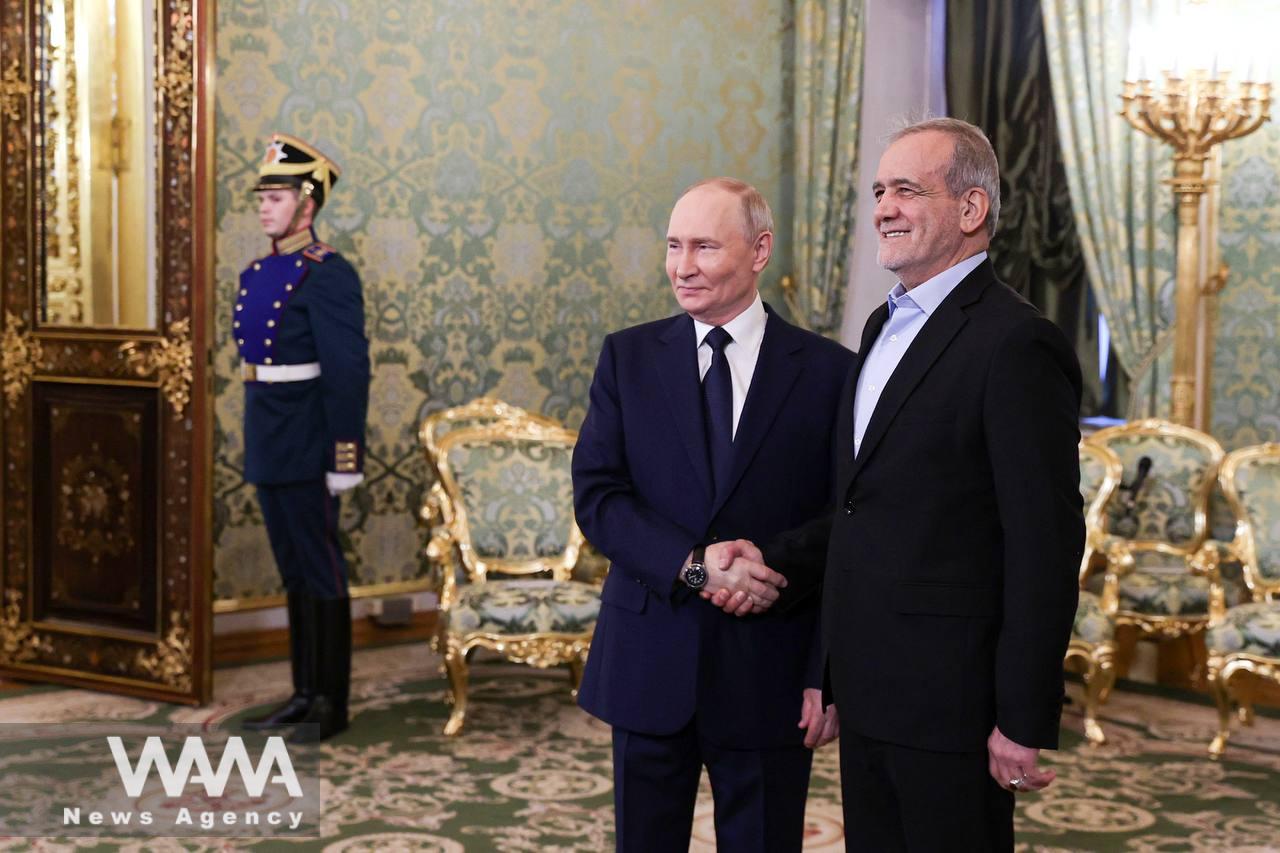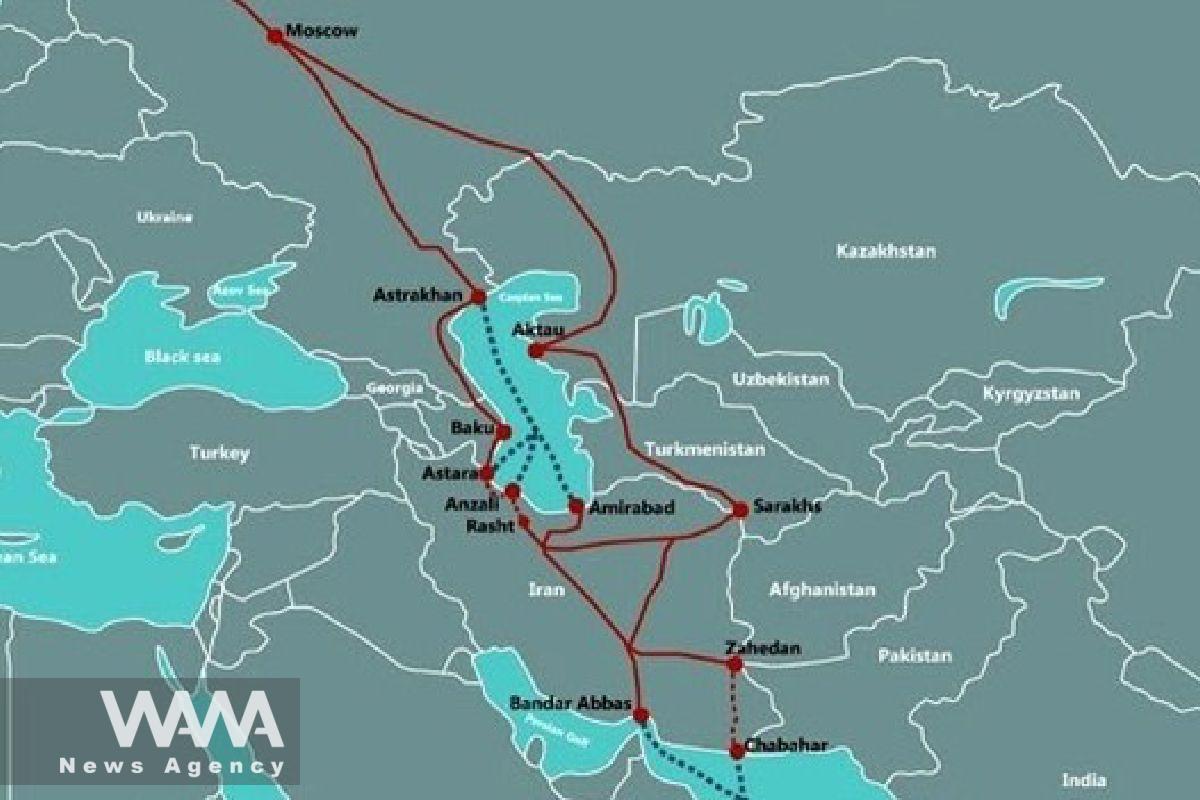Two Months to Iran-Russia Maritime Consortium Launch
WANA (May 12) – Under the terms of the bilateral treaty between Iran and Russia, the two countries have committed to expanding cooperation in transportation, particularly within the framework of the International North-South Transport Corridor (INSTC) and maritime logistics.
As part of this effort, they have scheduled the operational launch of a joint association of shipping and port companies within the next two months.
A Strategic Corridor Linking India, Iran, and Russia
The 7,200-kilometer INSTC was initiated in the early 2000s (September 2000) with the goal of establishing an efficient and cost-effective transit route for cargo movement between India and Europe via Iran. The corridor consists of three branches: the eastern route (Central Asia), the central route (Caspian Sea), and the western route (via Azerbaijan and Armenia).

Russian President Vladimir Putin and Iranian President Masoud Pezeshkian meet in Moscow, Russia, January 17, 2025. Handout / WANA News Agency
Central Route: Direct Caspian–Persian Gulf Link
The central branch, connecting Amirabad and Caspian ports in Iran, enables a direct link between the Caspian Sea and the Persian Gulf. According to experts, this uninterrupted connection between Iran and Russia minimizes the risks of political and economic interference by third-party countries.
Operational Steps: Upcoming Meeting in Makhachkala Port
In a recent phone conversation, Saeed Rasouli, Iran’s Deputy Minister of Roads and Urban Development, and Dmitry Azarov, Deputy Minister of Transport of Russia, agreed to hold a joint meeting at Russia’s Makhachkala Port within two months to operationalize the planned Iran-Russia maritime transport consortium.
Recent Agreements and Preparations
This follows a report earlier this spring from Russia’s Ministry of Transport, which announced that Iran and Russia had agreed to form a consortium of shipping and port companies after a meeting between Russian Deputy Minister Dmitry Zorov and Iran’s Saeed Rasouli. The meeting was part of preparations for the Permanent Commission on Trade and Economic Cooperation between the two countries.

Treaty Commitments on Transport Expansion
According to Article 21 of the Iran-Russia treaty, signed in January 2025 by the presidents of both countries, the parties are committed to expanding cooperation in road, rail, air, sea, and multimodal transport, including training of professionals in the field. The treaty emphasizes collaboration within the framework of the INSTC.
Furthermore, the agreement supports close coordination between the two countries in international transport organizations, encourages mutual cooperation between transport authorities and companies, and promotes participation in global transportation industry events.
Strategic Impact of the INSTC
The INSTC is one of the strategic infrastructure projects jointly pursued by Iran and Russia, with India also a key partner. The corridor is expected to reduce cargo transit time and cost for Eurasian countries by 30% and 40% respectively, compared to the traditional Suez Canal route.
Growing Trade Potential
According to UN reports, trade volume among INSTC member countries reached around $250 billion in 2021. With improved infrastructure and customs facilitation, this figure is expected to grow to $500 billion by 2030. Notably, Iran’s Seventh Development Plan mandates achieving 40 million tons of transit volume by the end of the plan period—an objective largely reliant on the INSTC.












